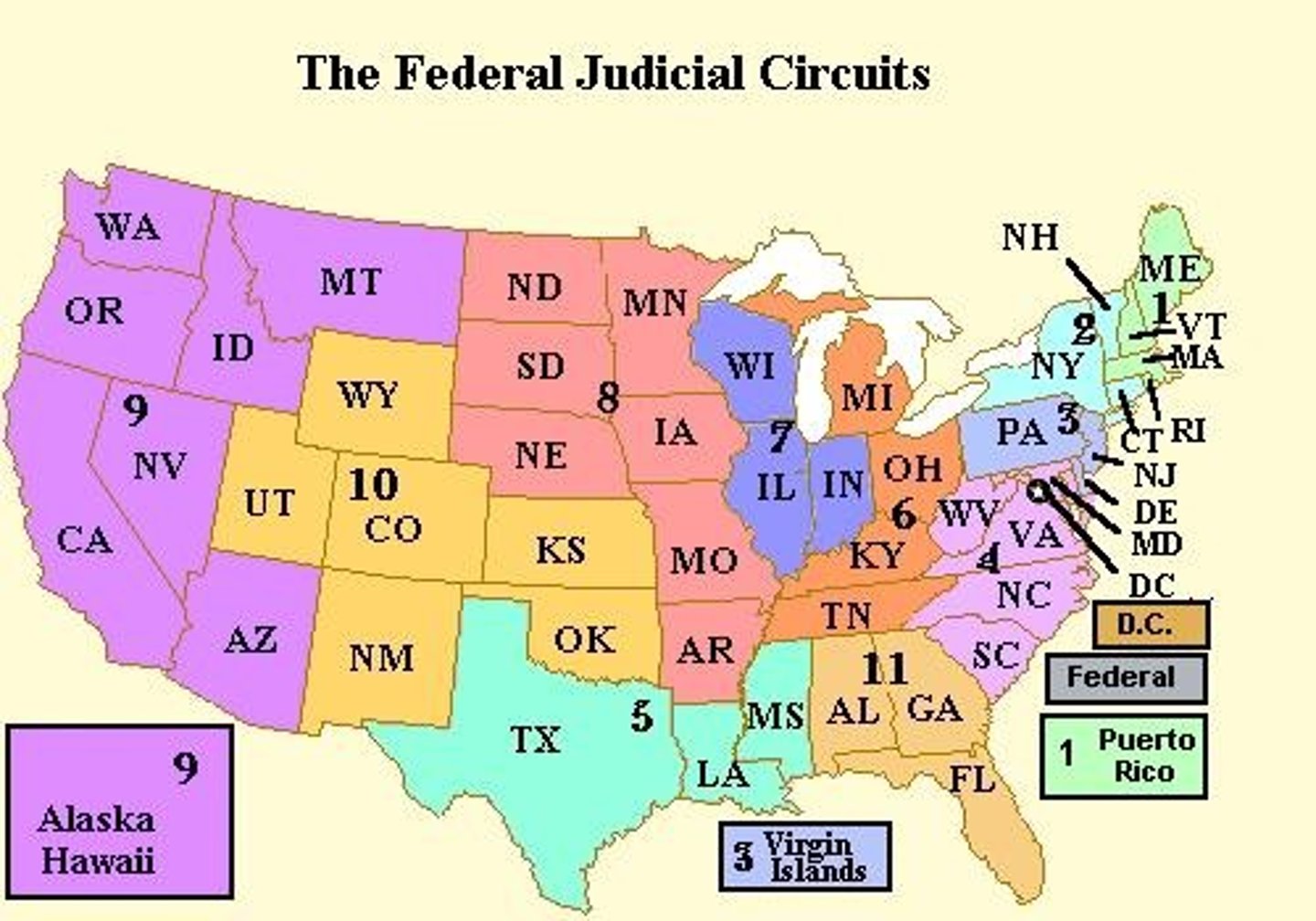Civil Procedure: Jurisdiction and Court Structures
1/27
There's no tags or description
Looks like no tags are added yet.
Name | Mastery | Learn | Test | Matching | Spaced |
|---|
No study sessions yet.
28 Terms
State Courts
Courts that handle state law cases.
Federal Courts
Courts that handle federal law cases.
Original Jurisdiction
Court's power to hear a case first.
Subject Matter Jurisdiction
Authority over the case's subject matter.
Personal Jurisdiction
Authority over the parties involved in a case.
General Jurisdiction
Authority to hear any civil or criminal case.
Limited Jurisdiction
Authority restricted by subject matter or amount.
Concurrent Jurisdiction
Both state and federal courts can hear a case.
Exclusive Jurisdiction
Only one court has authority to hear a case.
Long-Arm Statute
Allows jurisdiction over non-resident defendants with contacts.
Standing
Requirement for parties to have a personal stake.
Venue
Location where a case is tried.
Forum-Selection Clause
Contractual agreement on the court for disputes.
Choice-of-Law Clause
Specifies which jurisdiction's laws apply to a contract.
Georgia Superior Courts
Trial courts with general jurisdiction in Georgia.
Georgia Business Court
Specialized court for business-related disputes in Georgia.
Fulton County Business Court
Court for corporate governance and business claims.
Federal Question Jurisdiction
Cases arising under federal law or Constitution.
Diversity of Citizenship
Jurisdiction based on parties from different states.
U.S. District Courts
Trial courts for federal cases.
U.S. Supreme Court
Highest court in the United States.
Mass Torts
Many injured parties from a single incident.
Discretionary Review
Supreme Court's choice to hear certain cases.
Sliding Scale Standard
Determines jurisdiction based on online business activity.
Judicial Circuits
Geographic divisions for U.S. Courts of Appeal.

Trial De Novo
New trial in a higher court after small claims.
Judicial Expertise
Specialized knowledge of judges in certain areas.
Reversible Error
Mistake in law that affects trial outcome.